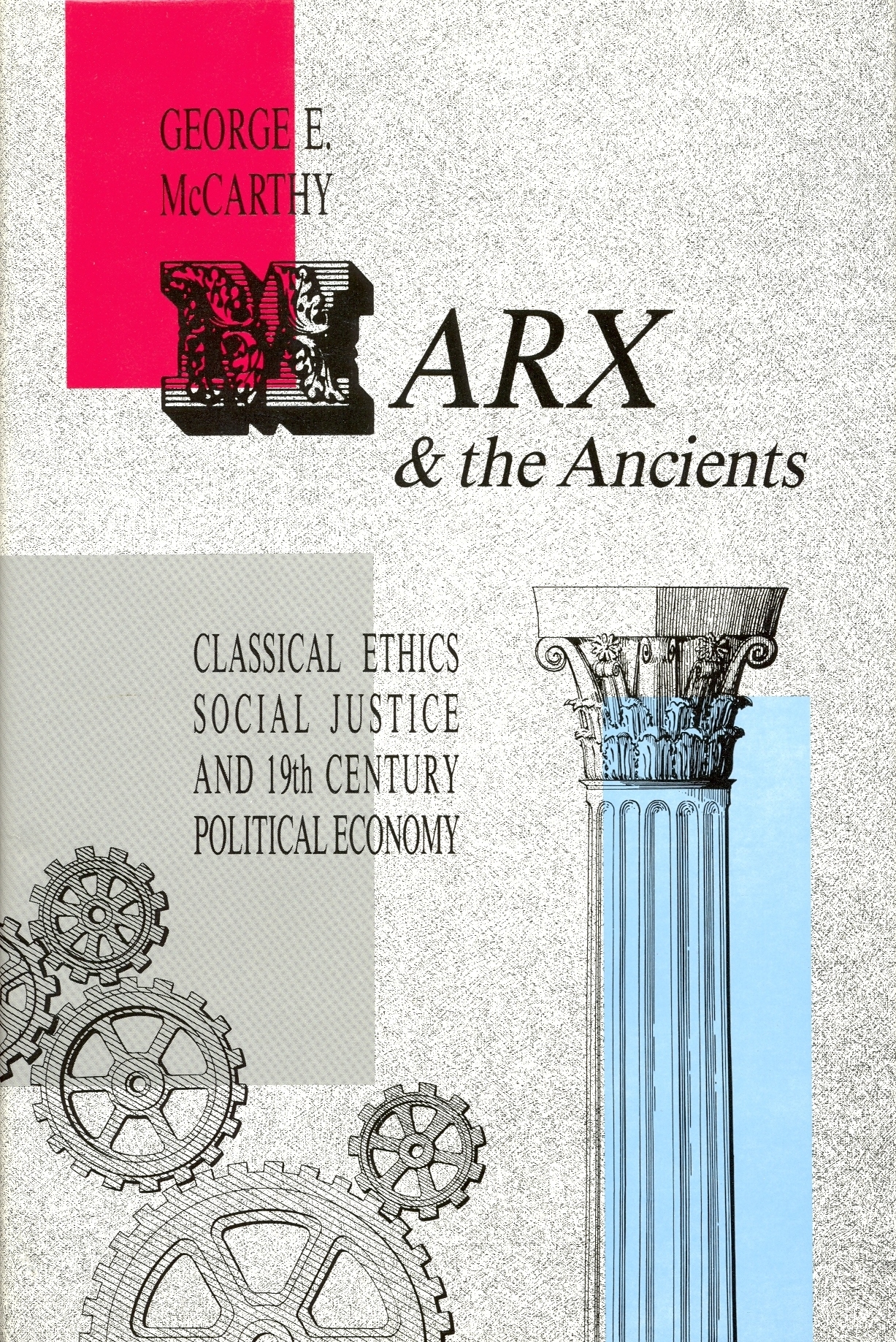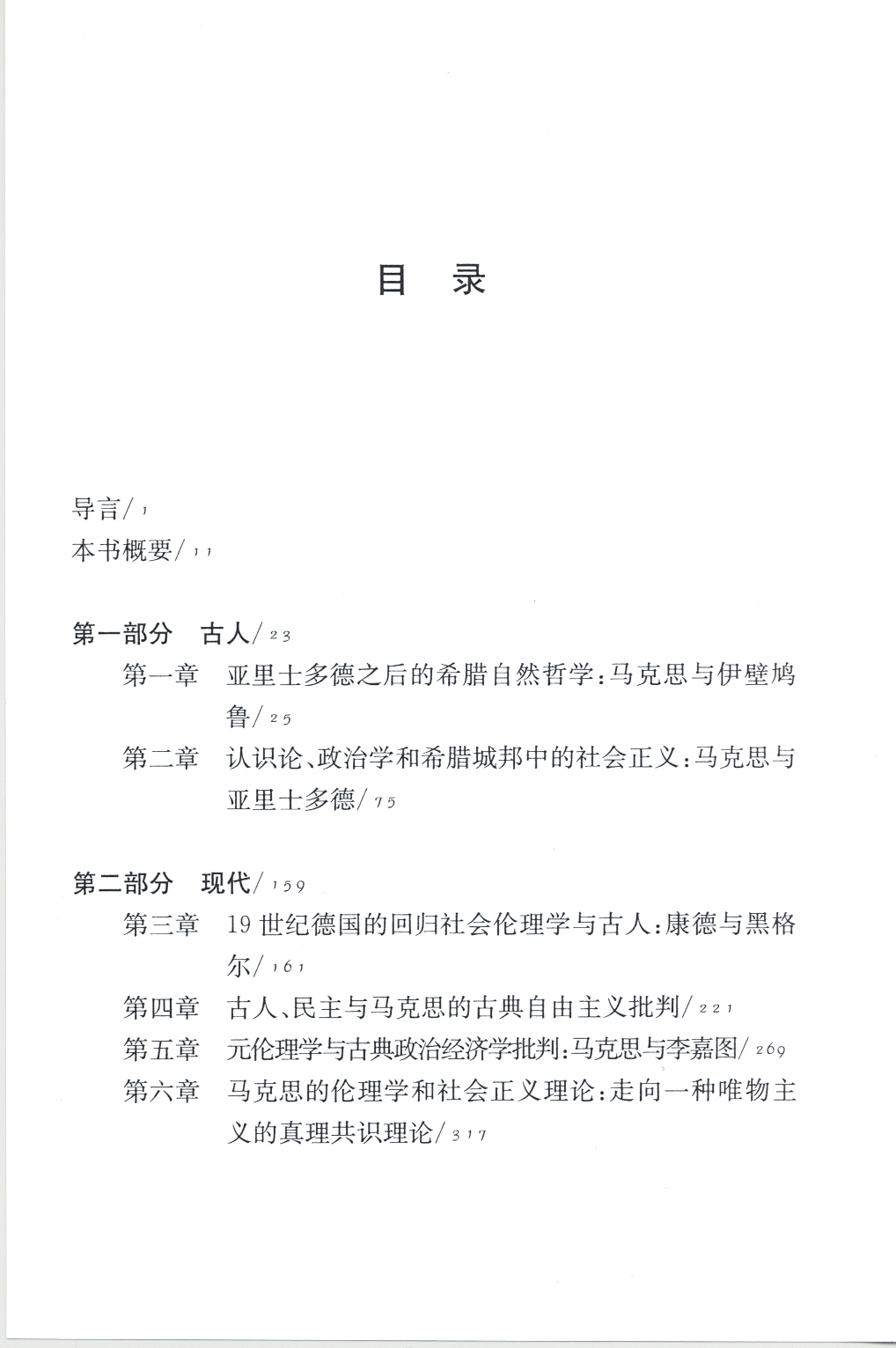 |
Gudian Lunli, Shehui Zhengyi, yu 19 Shiji de Zhengzhi Jingzi xue |
|
Table of Contents Acknowledgments Introduction Part I: The Ancients Chapter One Post-Aristotelian Greek Philosophy of Nature:
Introduction Chapter Two Epistemology, Politics, and Social Justice in the Greek Polis: Marx and Aristotle Introduction Part II: The Moderns Chapter Three The Nineteenth-Century German Return to Social
Ethics
Introduction Chapter Four The Ancients, Democracy, and Marx's Critique of Classical Liberalism Introduction; Liberal Psychology, the Workplace, and Distorted
Self-development Part III: The Synthesis of Ancient and Modern in Marx Chapter Five Metaethics and the Critique of Classical Political
Economy:
Introduction Chapter Six Marx's Theory of Ethics and Social Justice:
Ethics, Political Economy, and Marx's Theory of Social Justice: The Debate Ethics and Method: The Levels of Ethical Critique in Capital Ethics and the Contradictions of Capitalism Marx Between Two Worlds: Classical Ethics and the Critique of Modernity Ethical Validity and Democratic Consensus: From Greek Polis to Modern Commune Epistemology, Praxis, and Democracy: A Critique of Habermas's Interpretation of Marx Notes Index |
Marx and the Ancients is the first book-length treatment to detail the relationship between classical Greek philosophy and Karl Marx's critique of political economy. From his dissertation on the physics and astronomy of Epicurus and Democritus to his later economic writings, Marx's view of the classical polis left its mark. George McCarthy argues that this forgotten element in Marx's thought helps clarify his positions on ethics and social justice. |
